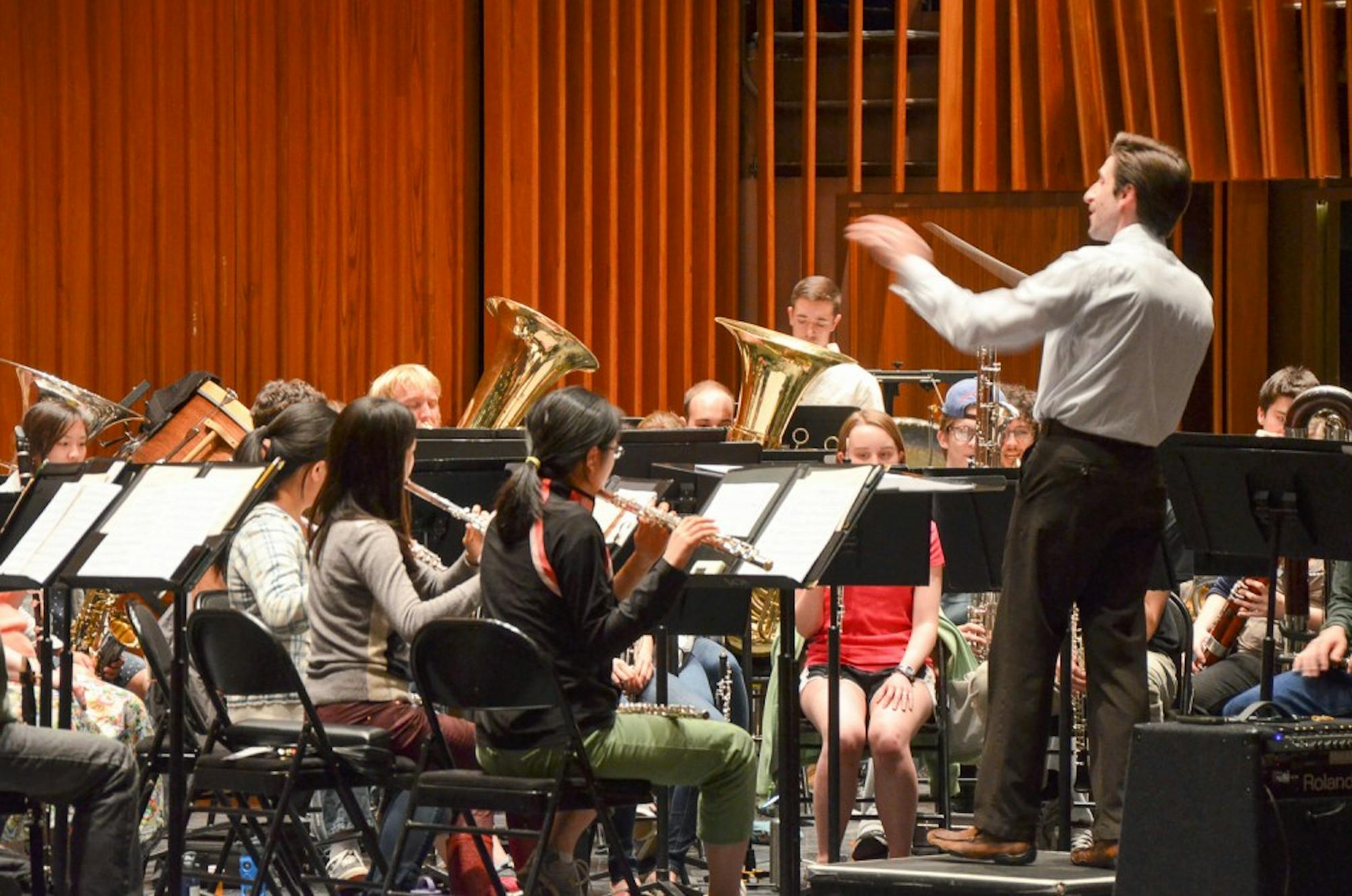With a repertoire that includes songs by Pulitzer Prize-winning composer William Schuman, renowned performer and conductor Johan de Meij and Grammy Award-winning producer and composer Jeff Tyzik, Dartmouth College Wind Ensemble takes the stage Saturday to play an ode to the Big Apple, evoking the sounds and vibrancy of the city.
In comparison to its winter concert, which featured a mixture of acoustic and techno-inspired sounds, this concert stays true to the traditional music for which the ensemble is known, conductor Matthew Marsit said.
Marsit described the repertoire as engaging, with the power to make listeners “really fall in love” with the concert’s muse, New York.
“[This concert] is definitely more symphonic in nature, but there’s still so much energy inside of it,” Marsit said. “I’m looking forward to the reactions of the audience — it’s just fun music.”
Flutist Mallory Rutigliano ’17, a New York native, added that the show’s music, catchy tunes audience members will want to “hum along to,” is likely to remain in listeners’ heads.
The concert’s theme centers around de Meij’s “Symphony No. 2: ‘The Big Apple,’” written in 1993.
Marsit described the piece as especially compelling, one that the composer said captures the “spirit, glamour and indifference of one of the most fascinating cities in the world.”
While the 40-minute piece dominates the concert, other songs inspired by similar motifs will round out the show, Marsit said. These include Schuman’s famous “George Washington Bridge,” written in 1950, and Tyzik’s “New York Cityscapes,” written in 2007. These pieces respectively consider the famous bridge’s construction and the various sites and cultural influences particular to the city’s five boroughs.
Marsit reached out to music department chair Steve Swayne, author of “Orpheus in Manhattan: William Schuman and the Shaping of America’s Musical Life,” and asked about incorporating his expertise on Schuman into the show’s program.
At a time when American music was largely pastoral or prairie-themed, Schuman set a standard by looking to city life as an equally legitimate inspiration for music, Swayne said.
On Saturday, Swayne will lead a pre-concert talk about Schuman’s impact on the arts in America — he was the first person to receive a Pulitzer Prize for music and served as president of both the Juilliard School of Music and Lincoln Center.
“Schuman was once derided as a ‘cement sidewalk composer,’” Swayne said. “He saw part of what America was about was its dynamism, its upward thrust in terms of economy and social climbing, as well as physical architecture. The fact that he writes a piece called ‘George Washington Bridge’ suggests that he sees the steel and granite and concrete of America as things to celebrate, and as distinct from other musical traditions.”
The ensemble began preparing shortly after returning from its spring break trip to Costa Rica. There, the group performed six concerts and worked closely with students at a local school, Marsit said.
Traveling together and serving a community translated into a strong term of practices and group camaraderie, tenor saxophonist Natalia Drozdoff ’17 said. This cohesion has proved important as the group mastered the rigors of Schuman’s piece, Marsit said.
“[‘The Big Apple’ symphony] is a work that has been on my wish list as a conductor [and] as a musician myself for the best part of my career, and this is the first ensemble that I felt completely confident was able to do it — and they are,” Marsit said. “The technical work is incredibly demanding, and the endurance to perform a piece of music this long and with this much breadth really does put weight on them.”
Despite these demands, however, some members of the group say they are thrilled with the spirit of the concert.
Horn player Mitchell Jacobs ’14 said he is excited to surprise the audience.
“The pieces we’re playing have some big sounds that could only be created by a band,” Jacobs said, “but they also exhibit a technicality, tonal shifts and epic proportions people might only expect from an orchestral symphony.”




